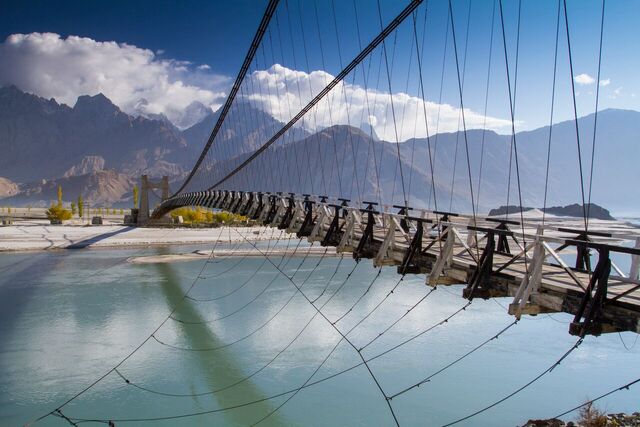The China-Pakistan Economic Corridor (CPEC) passing through Gilgit-Baltistan has the potential to address Pakistan’s energy deficit and bring transformative changes to the region. However, concerns are growing among locals who fear marginalization and possible displacement from their homes. The USD 46 billion project aims to connect China’s Xinjiang region to the Gwadar port in the south, reducing the transportation distance for China’s oil and fostering economic development.
The 3,218-kilometer route, set to be completed over several years, has raised hopes for economic growth and energy solutions in Pakistan. If the 21 energy agreements proceed as planned, they could generate up to 16,400 MW of energy, significantly contributing to the country’s power needs. Entrepreneurs in Gilgit-Baltistan, like Milad-us-Salman, anticipate business opportunities, especially in exporting fruits to China, potentially doubling sales and profits.
Despite these hopes, concerns persist among the local population. Some fear being excluded from the benefits of CPEC, expressing uncertainty about the government’s engagement with the region. Development consultant Izhar Hunzai views CPEC as a “black hole” for the locals, emphasizing the need for more clarity on the region’s role and benefits.
Hunzai suggests tapping into Gilgit-Baltistan’s abundant water resources for hydropower projects, offering a cleaner energy solution that could be sold to China and benefit the region. However, there is skepticism about the government’s decisions, such as buying coal-powered plants from China instead of investing in local hydropower, which could be more cost-effective.
Additionally, there are concerns about demographic shifts and potential displacement of locals due to the CPEC project. With only 1% of the 73,000 square kilometers in Gilgit-Baltistan being cultivable land, there are fears that outside investors could further diminish economic opportunities for the local population.
In summary, while the CPEC holds promises of economic development and energy solutions for Pakistan, the concerns raised by locals in Gilgit-Baltistan highlight the need for transparent communication, inclusive planning, and sustainable development practices to ensure the well-being of the region’s residents.
















